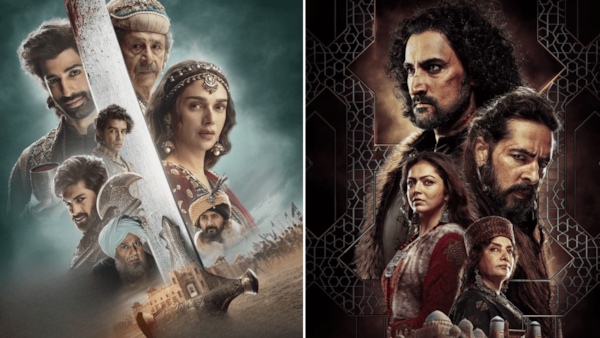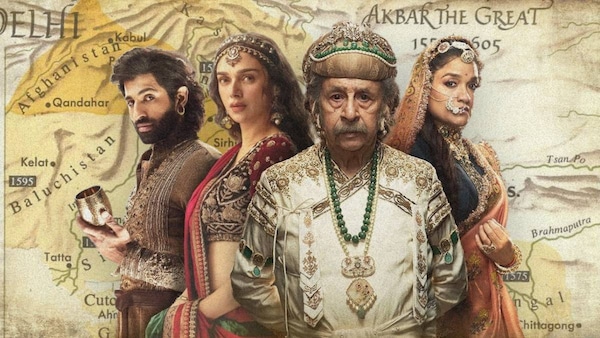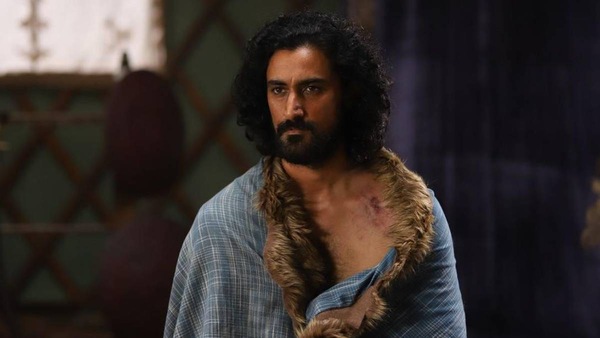Indian Historical Shows Have A Game Of Thrones-Sized Problem
Neither Disney+ Hotstar's The Empire nor ZEE5's Taj have been able to mine history in a way that does it justice, in their quest to be seen as India's Game Of Thrones successors, writes Manik Sharma.

Last Updated: 03.53 PM, May 21, 2023
IN A SCENE from ZEE5’s Taj: Divided By Blood, Murad — the bloodthirsty middle son of Emperor Akbar — takes up the challenge of bringing a horse under control, with grotesque results. A lovely hovering shot shows a decapitated white stallion — the brutal execution supplying both visceral violence and the inexpensive thrill of watching the already tarnished legacy of the Mughals being dented a bit further. With the second season of the series (Reign Of Revenge) now streaming, it’s worth examining the Game of Thrones-sized shadow that is visibly dictating the rules of engagement for Indian historical dramas, and — unfortunately — the limits of their imagination.
There is a keen interest in Mughal history at the moment, not so much to adequately represent it or query it for socio-religious relevance, but to merely impress upon it the tropes of modern indignation. While Taj tells the story of a secular Akbar trying to oversee the peaceful handover of his throne, Disney+ Hotstar’s The Empire, released in 2021, attempted to trace the unlikely (and ultimately tragic) ascent of a young Babur.
There are plenty of narrative themes to mine in both stories; not least, the ways in which Babur’s arc contrasts with that of his grandson Akbar, the ruler considered to have planted the seeds of pre-statehood secularism in the Indian subcontinent. Unfortunately, it’s not what either series builds itself around. Instead, it is Mughal barbarism, debauchery and kohl-eyed humourlessness that both are mired in.

There is the sight of Shabana Azmi (The Empire) and Nazeeruddin Shah (Taj), despondently looking over amateur actors preening like high school jocks. Azmi and Shah are casting coups, ultimately ruined by a distinct lack of prestige in the design that these shows apply to rich source material. The sex, the debauchery, the ultra-violence and the gossipy tone has more in common with the soaps of the ‘90s, than their contemporary western counterparts.
Taj and The Empire do at least manage some semblance of scale. It would be unjust to compare them to the Game of Thrones (although The Empire was very clearly positioned as the Indian “answer” to it) or The Rings of Power, because they are beasts elevated not only by superior craft, but also by superior economics. In the Indian shows attempting to take their mantle, the CGI and the battle choreography are both of poor quality but more dishearteningly, equally so is the writing.
In fairness, period/historical dramas in India have struggled even before the advent of streaming. Leave aside the success of Sanjay Leela Bhansali’s theatrical magnum opuses, most haven’t been able to match even the highs of the Ramanand Sagar era. In its place, we have a vapid display of arbitrary regal heritage, more for the sake of showboating as opposed to actual storytelling. The Empire laid the spadework for this before Taj. Neither seems to believe in the humanity of their stories, so occupied are they with communicating the sadism of a bloodline that is now on the receiving end in fiction (as also in reality). Beyond the Mughal obsession — the obvious safe space to exaggerate for effect — there is the Game of Thrones-shaped hangover that these attempts feel like laughably bad imitations of.

Not that sex and depravity are unwelcome, for they are among the themes that Indian creators have been coy about fully embracing. For a country that assimilated more than 50 princely states at the time of independence, it is a bit shocking that our rich if conflicted history has rarely been implored with the wisdom of balance. Go looking for heroes and everyone is someone’s. We have been taught history with the devotional lens of the victor as opposed to the objective lens of the observer. It’s why creating historical shows can only seemingly oscillate between blind narcissistic bravado — Tipu Sultan, Prithviraj et al — or gullible, salacious recreations like Taj and Empire. Gone are the days of the graceful and meditative (if ultimately tiring) Jodha Akbar. In the craven mission to bleed history for stimulation, creators have forgotten where that line of austerity ought to be drawn.
For everyone attempting to copy Game Of Thrones’ sensationalism, there seems to be no appreciation of that mammoth show’s greatest strength — its Shakespearean characters, exceptional performances and bewitching attention to detail. At least for the first four seasons. GoT’s best moments were uttered, quietly whispered or airlessly carried across cold, war-beaten dungeons that men and women schemed out of.
Comparatively, both Taj and Empire, for all their endeavour and passable visual tapestry, seem occupied with only the excesses of their inspiration and none of its depth or layered characterisation. For the longest time, that iconic show rode the power of its story as opposed to anything its economics would eventually enable. Then there is the vague nature of a history’s moral ceiling. At what point do you draw the line to prevent it from becoming a prop-led, artificial circus of sex and sleaze? Based on evidence at least, that line is still a vague little mound of abundance without the specificity of anything soulful or genuinely sensitive.
